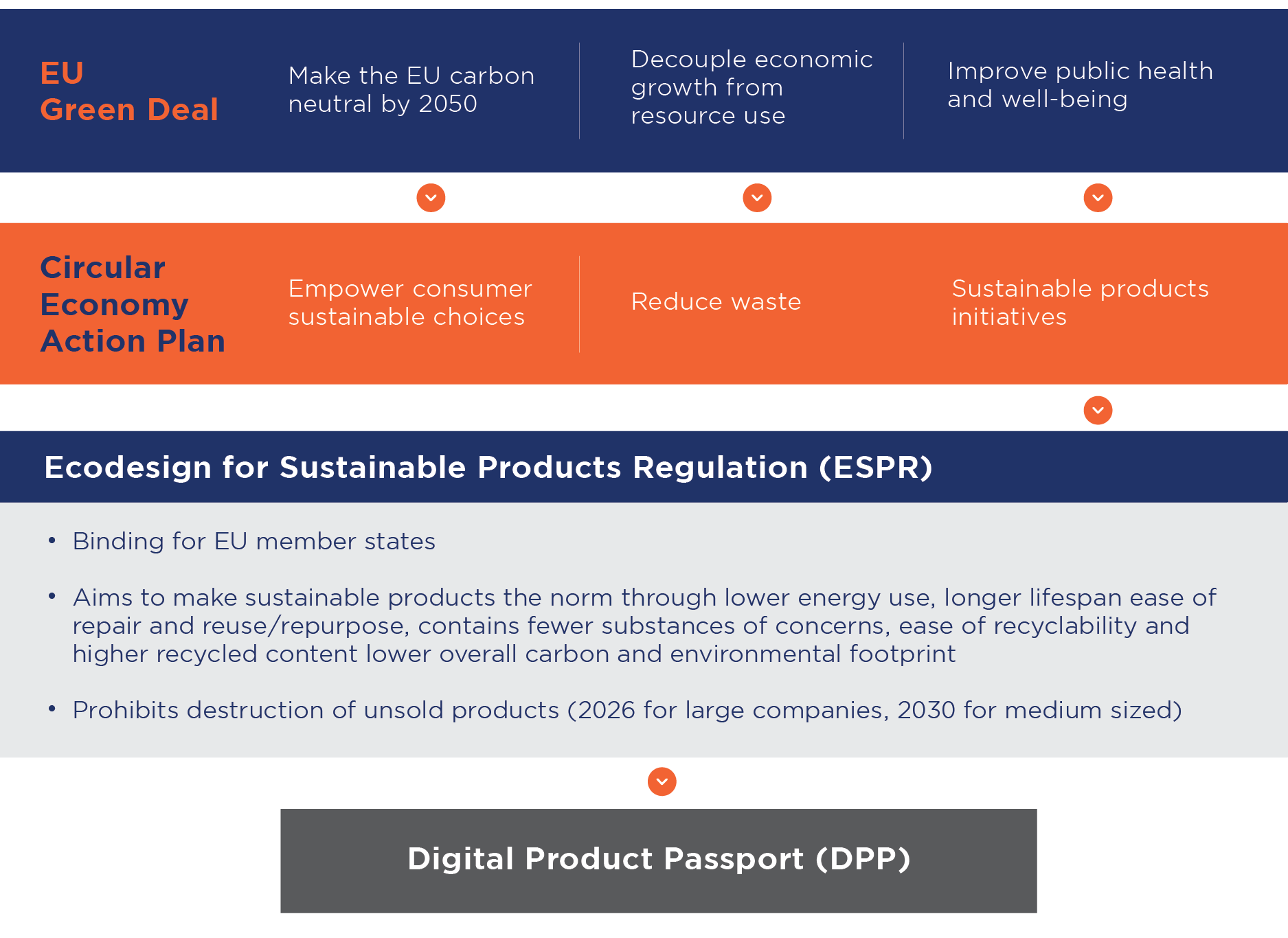
The success of Digital Product Passports (DPP) hinges on the consistent and reliable exchange of product information throughout the entire lifecycle.
GS1 standards play a critical role in enabling this by ensuring consistent product identification and data exchange.
This empowers all stakeholders, from manufacturers and retailers to consumers and recyclers, to interact effectively with the product and contribute to its circular journey.
What is DPP?
Digital Product Passports have been introduced by the European Union legislators to ensure products are fully transparent, traceable throughout their lifecycle.
A DPP is a digital record of a unique product’s complete life cycle, storing key traceability data about the product.
Benefits of DPP
Contributes to sustainability
Consumers and professional buyers receive product data that enables sustainable choices.
Increased traceability
Unique identities and standardised data make it visible that all parties in the supply chain meet sustainability requirements.
Enhanced transparency
Open sustainability data provides greater international visibility for the brand and towards consumers.
Consumer and product safety
Reliable and verified data helps protect products, consumers and patients.
Optimised supply chain
Buyers and producing companies avoid unnecessary manual administration and data management.
Regulatory compliance
Standardised information ensures that brand owners comply with regulations and industry requirements.
This data support the circular economy, decarbonisation and sustainability. DPPs do not exist in isolation – they are part of a wide set of regulatory initiatives within the EU green deal:
DPP regulatory framework
How is the EU making sustainable products the norm? This diagram shows the key initiatives including DPP:

DPP categories
In April 2025, the first working plan will be adopted and will likely include the following items:
| End use products | Intermediary items | |||
|---|---|---|---|---|
| Textiles | Iron & steel | |||
| Mattresses | Aluminium | |||
| Detergents | Chemicals | |||
| Furniture | ||||
| Tires | ||||
| Lubricants | ||||
| Paints | ||||
| Energy-related products | ||||
| Electronics |
GS1 standards powering DPP
An introduction to Digital Product Passports
This session will help you understand DPPs.
We provide a regulatory overview, discuss why its happening and who it will effect and when. Then we explain how GS1 standards support implementation and how to get started. Whether you're a beginner or looking to refine your approach, gain insights and next steps to prepare for the circular economy.
Let's build a sustainable future together
Get in touch to explore how GS1 UK can support your sustainability journey.






